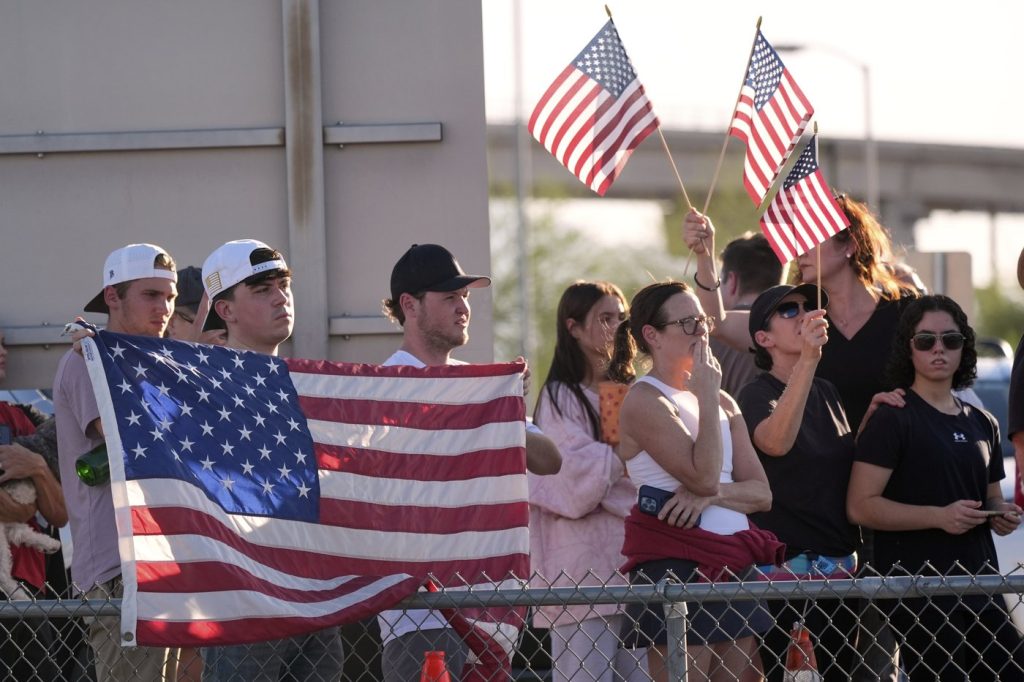The governor of Utah, Spencer Cox, recently grappled with articulating his thoughts on the troubling state of America, especially in light of the shocking public killing of Charlie Kirk, the CEO and co-founder of Turning Point USA. During a press conference, Cox noted the pervasive violence affecting individuals across the political spectrum, referencing incidents such as the assassination of Minnesota legislator Melissa Hortman and multiple threats against former President Donald Trump, including assassination attempts and a firebombing at the official residence of Pennsylvania Governor Josh Shapiro.
Cox expressed a painful recognition of the divisiveness permeating the nation’s political landscape, stating, “Our nation is broken.” His acknowledgment of violence impacting both Republicans and Democrats highlights a stark reality: the issues facing the country transcend party lines, inviting a collective inquiry into the path forward amid rising political turmoil.
The discussion of political violence has become increasingly relevant as Americans reflect on recent events. Notable instances include shootings in Butler, Pennsylvania, the Minneapolis suburbs, San Francisco, and New York City. These occurrences raise profound questions about the feasibility of national unity and what it might entail. Many citizens express a desire for reconciliation and healing, yet the identification of blame and strategies for repair complicate the narrative.
Across the political spectrum, the perception of America’s troubles is widely shared. Conservatives, liberals, socialists, and religious leaders alike articulate concerns over ideological divides, intense anger, and declining civility within the country. The consensus reflects a desire for a united front, yet the deeper issues of responsibility and resolution remain divisive.
Cox's somber reflection came with hopes that Kirk's death might catalyze unity, although it is feared it could instead further entrench existing divides. Reactions to Kirk's assassination were notably polarized. Initial statements from officials across party lines condemned political violence while expressing sympathy for Kirk's family. Arizona Republican chair Gina Swoboda described the incident as shocking and unacceptable, while Maine’s Democratic Governor Janet Mills expressed her horror as well.
However, as more details emerged, reactions morphed. Some Republican voices, including Georgia Rep. Marjorie Taylor Greene, indicated a more aggressive stance, urging a resurgence against perceived attacks, while former President Trump attributed Kirk's death to leftist rhetoric, raising concerns about the escalation of tension between political factions.
On the left, while some refrained from inciting further division, social media reflected harsher sentiments, with critics arguing that Kirk was a product of the very violence he often endorsed. These discussions drew comparisons to previous instances of celebrated political violence, exposing a rift in how different groups perceive and react to political threats.
Politicians face enormous pressure to navigate these complex dynamics, particularly recognizing the weight of their words in politically charged moments. Unlike Trump’s more provocative language, former Presidents Joe Biden and Barack Obama conveyed a more conciliatory tone, affirming their thoughts and prayers for Kirk’s family while calling for civility as essential for national cohesion. This approach resonated in various places, uniting College Republicans and Democrats in Connecticut in a joint statement denouncing violence.
Cox lamented the state of the nation and questioned whether the past 250 years of American history have culminated in the current atmosphere of division and hatred, invoking a sense of urgency for a return to mutual understanding. This plea for introspection and civility serves as a reminder of the long-standing values that underpin American democracy.











